National Press Club Address – “Melanoma science in the race against brain cancer. Using a terminal diagnosis as a path for good.”
MIA Co-Medical Directors, Professor Richard Scolyer AO and Professor Georgina Long AO, have delivered their second address to the National Press Club of Australia, this time detailing world-first breakthroughs in applying melanoma science to Richard’s brain cancer.
Professor Scolyer was diagnosed with Grade 4 glioblastoma in June this year. With standard treatment not having changed in some 20 years, and a prognosis of 6-9 months, Richard and his fellow MIA Co-Medical Director, Professor Georgina Long AO, set about applying treatments they have pioneered in melanoma to his brain cancer.
“I have not had the standard treatment protocol for brain cancer, and instead stand here today as patient zero in what may become the new frontier of brain cancer treatment,” Professor Scolyer told the Press Club.
“I became the first brain cancer patient in the world to have had combination neoadjuvant immunotherapy, so before surgery to remove my brain tumour.”
“I am proud to say, that only days ago, I had another world first treatment for my brain cancer….a personalised cancer vaccine with combination immunotherapy, instead of standard treatment. My vaccine is designed to further boost my immune reaction against my brain cancer, to target tumour cells we can’t see and prevent recurrence.”
Professor Georgina Long, the world’s top melanoma expert and Richard’s long-time colleague, told the Press Club, “Melanoma Institute Australia and the melanoma-field has led the world in the development of personalised cancer vaccines.” She went on to explain that by using that expertise, they analysed the whole genome of Richard’s tumour, and of him. This enabled identification of what is unique to Richard’s tumour that has high potential for the immune system to recognise as an enemy.
“As scientists and researchers, it is incumbent upon us all to push the medical field forward,” Professor Long said during the address.
Whilst too early to yet assess the impact of the vaccine, Professors Scolyer and Long revealed early scientific breakthroughs coming from the world-first combination neoadjuvant (pre-surgery) immunotherapy Richard received. Richard’s tumour, after resection, showed a 10-fold increase in immune cells, and these immune cells were activated against an enemy. They were also bound to drug, proving there is no blood brain barrier as historically conceptualised.
“We couldn’t have hoped for better results,” Professor Long said. “The neoadjuvant combination immunotherapy was doing what we had seen it do in melanoma, but this time it was doing it in Richard’s brain cancer.”
The Press Club was told that, based on the data generated, the global glioblastoma field was already taking action, investigating starting programs for glioblastoma, including support of truly neoadjuvant clinical trials.
Professors Scolyer and Long also used their Press Club address to implore change within the global cancer research field.
“We know we are not curing as many cancers as we could,” they said. “Think big and be courageous. Our brain cancer advances, based on one single patient and one single tumour, are the tip of the iceberg of what can be achieved when cancer researchers and clinicians, underpinned by science, are brave and prepared to challenge the status quo.”
They asked the cancer research field to challenge the paradigm and look beyond the confines of one cancer, particularly for the subset of cancer patients who are dying on “standard treatments”. They also highlighted the need to design better clinical trials and ensure greater access to patients, as well as the need to embed research into clinical care to generate faster scientific data.
“This must be the new pathway to transform the outcome for cancer patients.”
Professor Scolyer concluded the Press Club address by saying he hoped in 12 months he could stand alongside Professor Long once again, providing further evidence of their impact in moving the cancer research field forward.
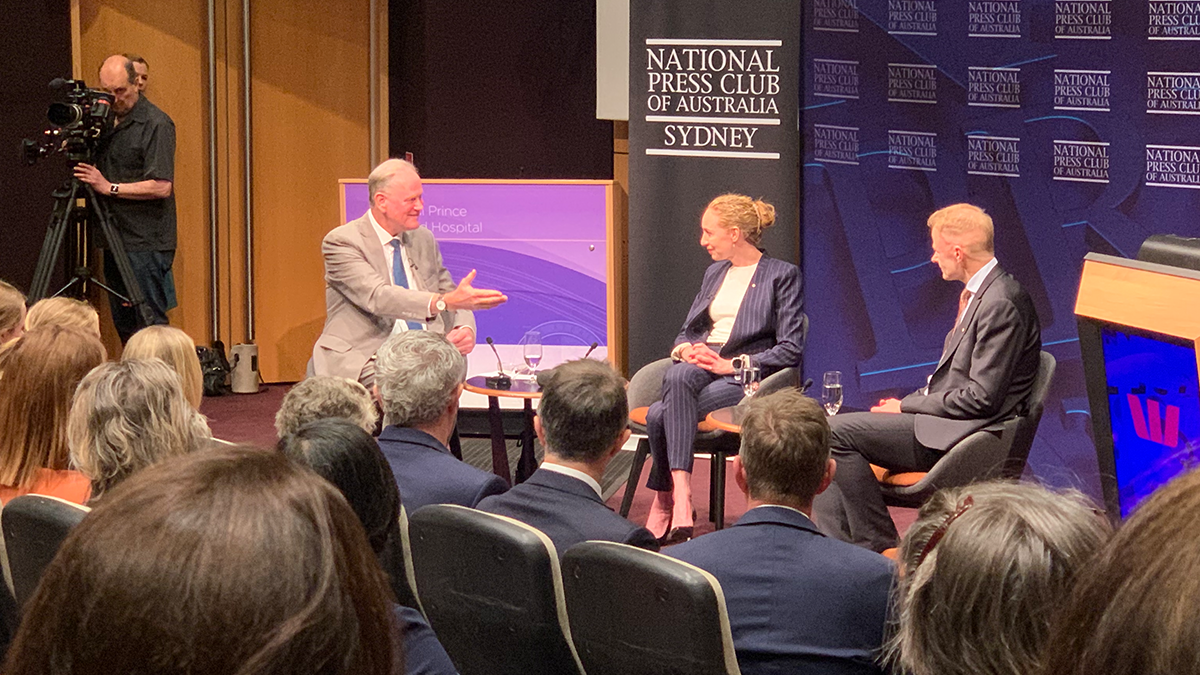

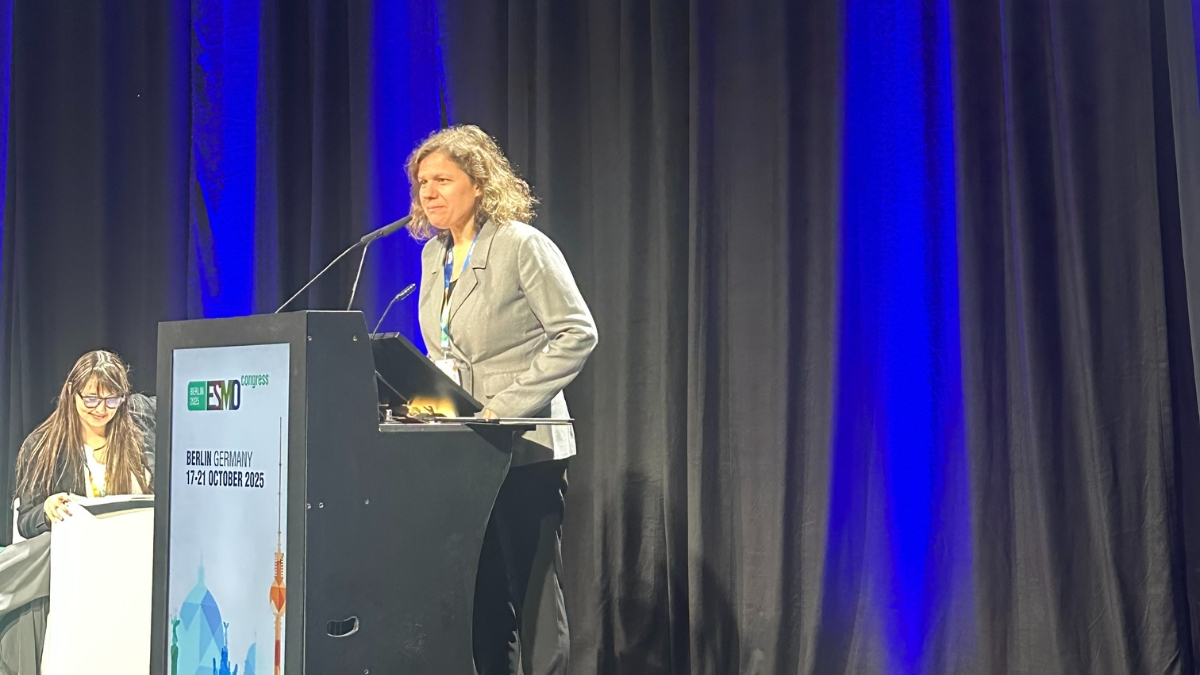
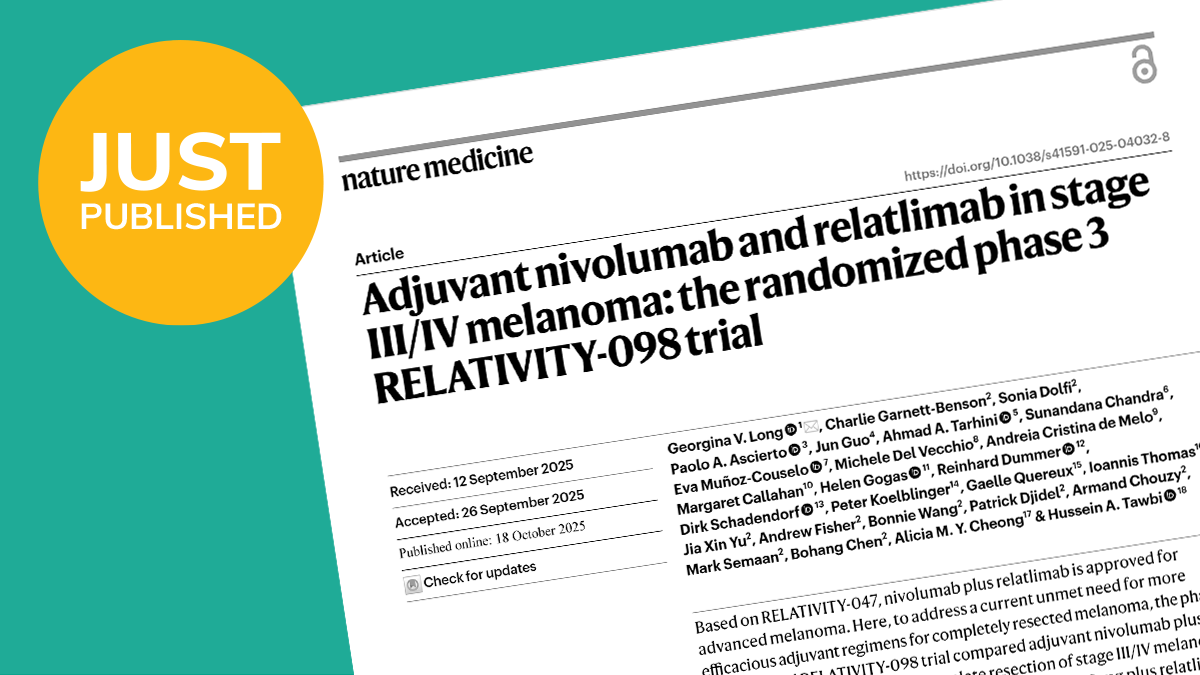
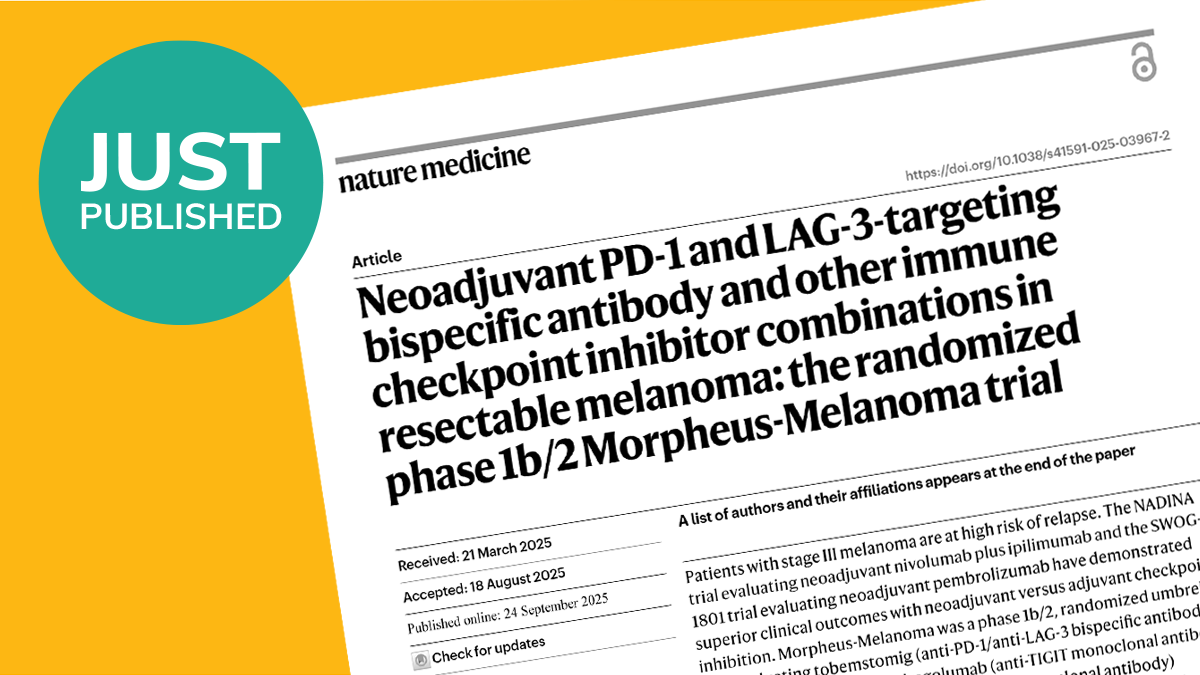
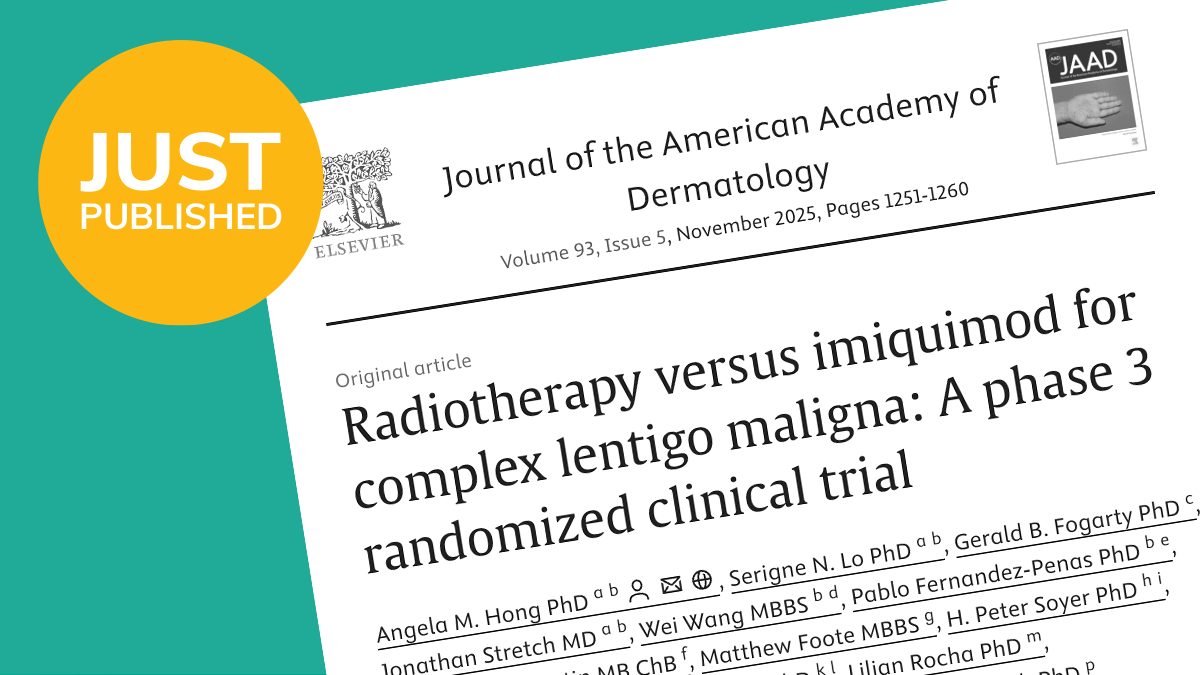
I have a 3 year old granddaughter in Sydney who has a brain tumour.
This is very encouraging and very important. Will you extend this thinking to other, rarer, high-grade brain cancers like the meningiomas, please?
Thank you Karl. At this stage it is experimental treatment for Prof Richard Scolyer as, with his medical background, he understands the risks. It is hoped that this will encourage clinical trials for other patients.
This is wonderful news.praying for Richard and every person who will die from brain cancer. My 44 year old daughter has gliobstoma and maybe this is her miracle🙏
We watched this on Australian Story tonight. It’s very inspiring and we wish Richard and the team the greatest success. My husband has a glioblastoma. Diagnosed in Feb. We would def be keen to know more when it’s available.
I am one of the luckily one being able to live a good life with metastatic melanoma throughout my body, including my brain diagnosed in October 2022. With my discussed various treatments, chemotherapy.. I dismissed as previously had left me feeling unwell as this for skin cancer treatments. Then immunotherapy treatment suggested, Pembrolizumub although this was proven to have success in other areas in my body, joints, bones, lymph nodes and Lung it was suggested that another immunotherapy drug that had some success with brain Mets I elected with specialist agreement to try the Keytruda by itself as I was concerned about greater risk of side effects with both. So first I had radiotherapy on the thoracic spine region then on 1st Dec 2022 commenced my immunotherapy treatment that remains my sole cancer treatment. Today all my areas of cancer have reduced or no longer apparent and I am enjoying life without the Dead Man Walking syndrome and looking forward to the day I might be cancer treatment free. Cheers
thank you for sharing this awesome article!!